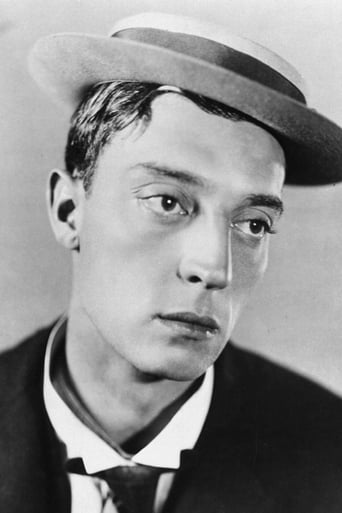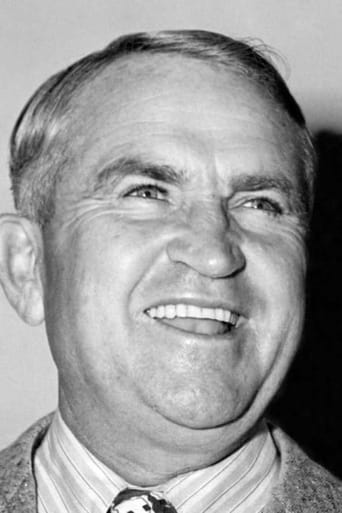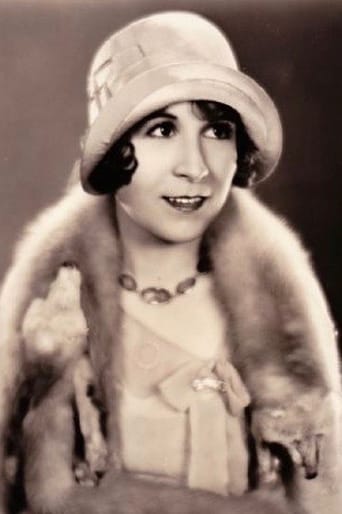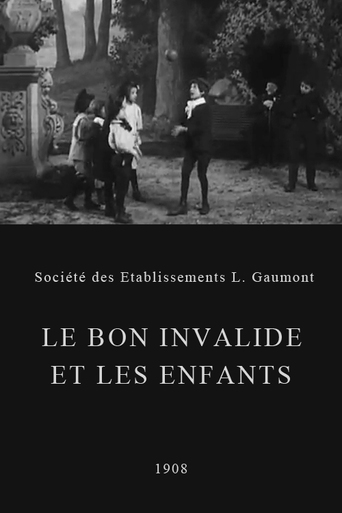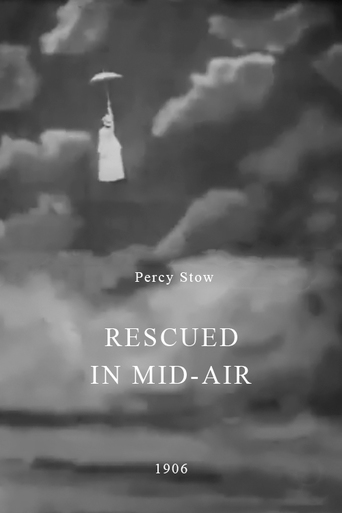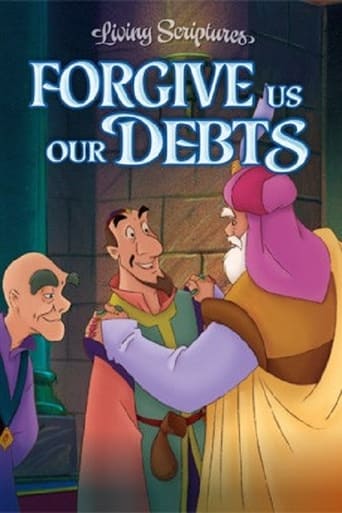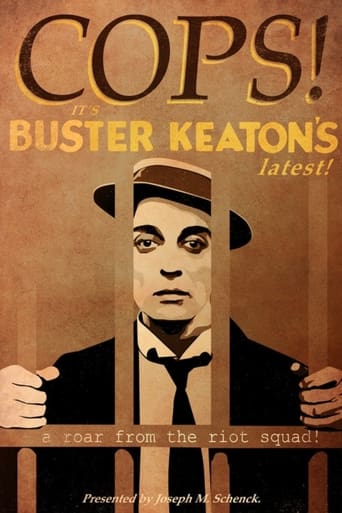
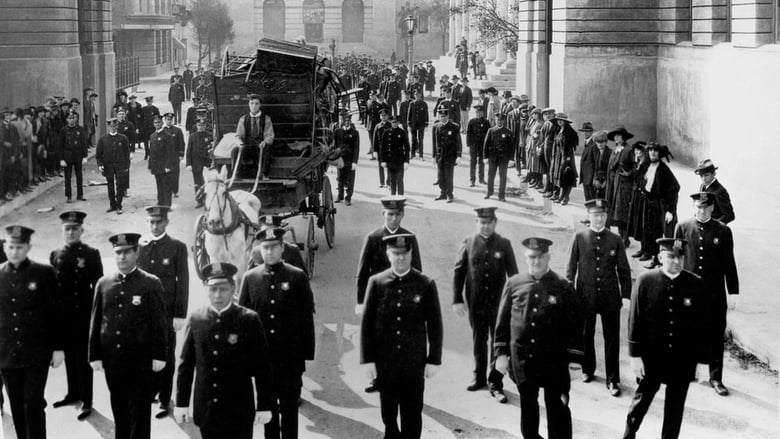
Cops (1922)
Buster Keaton gets involved in a series of misunderstandings involving a horse and cart. Eventually he infuriates every cop in the city when he accidentally interrupts a police parade.
Watch Trailer
Cast


Similar titles
Reviews
Cops (1922) is often considered the greatest of Buster Keaton's short films. I myself prefer The Boat (1921), which I feel is not only his funniest short but also the best suited as an introduction to his work, but this one certainly sits alongside it. It contains two of my favorite qualities about Keaton's work: his stunts and acrobatics, and his dark sense of humor.Cops starts of very slowly. The first ten minutes don't have many laughs, which might put impatient folks off. It mostly sets up Buster's problem and the series of incidents which lead to up the film's iconic chase at the end. And boy is it worth those first ten minutes once the chase begins. It's the largest, most chaotic chase scene he ever put together before the hilarious finale of Seven Chances (1925). It's not only one of the best chase scenes of the silent era, but of all cinema period.The bleakness of the ending is a complete shocker. Buster didn't always get the girl at the end, but there was usually little doubt that he'd get to walk away unharmed by the last intertitle. In this film, Buster is so crushed by the girl's rejection that he gives himself over the enraged legions of cops. The last image is of a tombstone with Buster's signature porkpie hat atop it, the words "the end" carved on the stone.A comedy classic worth checking out.
For me "Cops" is a Film Noir before the term was even created. Although not visually "dark" "Cops" certainly follows it's theme that working hard and doing good doesn't always lead to a happy ending; neither should you count on the "guardians of society" to help you - or be on your side for that matter. Basically, you're on your own. This theme starts out immediately with the quote from Houdini "Love laughs at Locksmiths" this wonderfully romantic idea that love should not be deterred by obstacles is squashed in the opening scene. Keaton appears to be in prison - but he's really outside the elaborate gates of his girlfriend's home who rejects him because he's not financially successful. while also a funny gag, the bars are a metaphor that there are all kinds of crimes and all kinds of prisons in this world. This rejection is taken as a challenge by Keaton and in most films this would be the start of an upward path to success. In "Cops" it's the opposite; no matter how much he tries to succeed, it just doesn't work (although you can argue that his startomg method may not have been the best) and leads Keaton on a path towards ruin. The highly cynical and fatalistic theme of "Cops" has generally been viewed as Keaton's reaction to what was happening to his friend Roscoe Arbuckle who also put his faith in the judicial system, the press,the Hollywood moguls, and even his fans with tragic results. The American Dream, doesn't work, the game is skewed.The original belief that hard work and talent bring success ( something that Keaton could certainly attest to ) was being eclipsed by the realization that there were those who were always out for the con and trying to make a buck without really working. Almost a century later, this theme remains remarkably current where "the smartest guys in the room" seem to always win.
Lying in bed with a sore throat, I needed some cheering up. Buster Keaton didn't let me down. 'Cops (1922)' is generally typical of the comedian's two-reelers of the early 1920s, though with a lesser emphasis on the ingenious gadgets exhibited in 'One Week (1920)' and 'The High Sign (1921).' The film opens with Keaton apparently looking through prison bars at his sweetheart, until a clarifying shot reveals that it is merely the girl's front gate {Harold Lloyd seized this visual gag for the opening of 'Safety Last! (1923),' but he had a right to it – one scene in Keaton's film, whether unintentionally or not, resembles the manner in which a prop explosion decapitated Lloyd's hand in 1919}. After convincing himself to become a businessman, Keaton's Young Man goes on to show that he has the worst luck in the world. First, he is bamboozled into purchasing another family's furniture (by Steve Murphy, the pickpocket in Chaplin's 'The Circus (1928)'), and then gets caught up in a police parade, where, ever a victim of circumstance, he is wrongly accused of performing an act of terrorism.Keaton loved ending his film's with an overblown chase sequence, whether it be the stampeding cattle in 'Go West (1925)' or the stampeding women in 'Seven Chances (1925).' In 'Cops,' our hero is pursued by hundreds of uniformed policemen, swinging batons and tripping over themselves. Here, Keaton really earns his title as the "Great Stone Face." The chaos and confusion of the pursuit is amusing enough, but even more so is Keaton's extraordinary lack of facial expression – he just runs, staring blankly ahead, like a man who expects his problems to dissipate as soon as he wakes up. Also incredible is the performer's physical dexterity, as he flips back and forth over a tall ladder balanced precariously on either side of a fence. Also watch out for Keaton regular Joe Roberts as the Police Chief, and recurring co-star Virginia Fox in a disappointingly brief role as our hero's love interest. Even an aching throat can't dampen the chuckles in this excellent comedy short. If laughter is, indeed, the best medicine, then I should be better by the morning.
Cops is perhaps Buster's best short. It's my favorite, at any rate, and that's saying something, because as great as many of his features from the 20s were, his two-reelers were probably his best work. In them he perfected the least sentimental of his personas: an opportunistic, somewhat roguish chap, who doesn't mind getting into a scrape over a girl or a bit of a scam, but who usually manages to get out of it with his wit, athleticism and charm.Keaton invented so much of cinema as we know it today, and rarely gets credit for it, so you really should seek out and watch as much of his pictures from the 1920s as you can.


